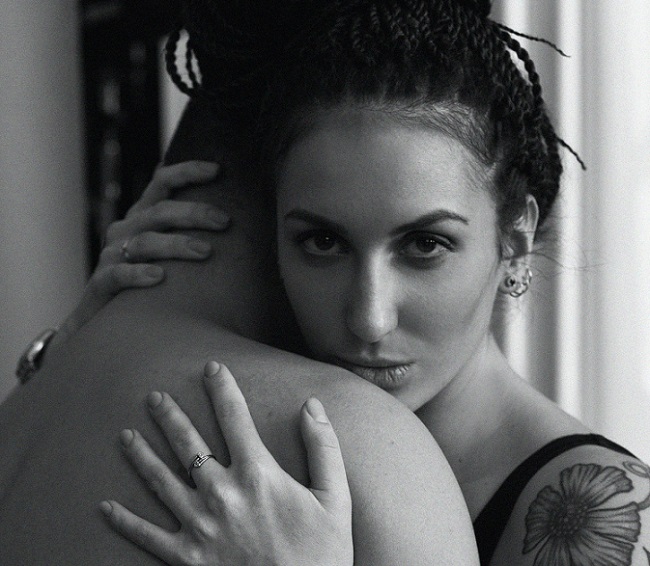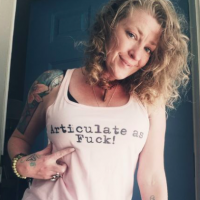The first time I saw him, it took my breath away.
Oddly enough, even 20 years after our divorce was final, part of me is still trying to catch it—my breath, I mean.
Several nights this week I dreamed about him: the man who I married, made a baby with, and in some pretty fantastic ways royally f*cked up my life along side of.
It was a classic trauma bond (we’ll get to that). But I guess back then I thought he was my twin flame.
And what is a twin flame?
It’s our soul’s other half—romantically speaking.
It’s not as New Age of a concept as you might think. Some people trace it back to Plato’s Symposium and the story of the god Zeus’ deep-seated insecurities regarding humans. Allegedly he split us (one majorly powerful being) apart so we’d be too distracted looking for our other half to ever come into any kind of real power and challenge his tenuous authority.
I mean, with as easily as some of us can get distracted by romantic entanglements (raises hand sheepishly), it makes sense.
Have you ever met someone who you just knew you knew? Then, maybe after a few weeks, months, or years you suddenly understood why you haven’t kept in touch in a few millennia?
I’m not certain where I stand on twin flames, but I have met many people—friends and lovers—over the years who I knew I knew. I recognized them. Maybe it’s their smell, the way they move that feels so familiar. Maybe it’s in the tone of their voice. All of that and something else, something intangible. Their essence.
I feel it with the man I’m currently entangled with. I felt it with my ex-husband. But I have also felt it with many female friends over the years, not just lovers.
Allegedly, however, a twin flame varies from a soul mate in that they are meant to be our romantic partners, not platonic ones, and those relationships are characterized by an extremely intense connection.
I can, to some degree, resonate with the appeal of meeting a great love again and again, and dancing until we get it right. I also cannot help but notice that the (alleged) twin flame connection is often window dressing for a trauma bond.
Trauma bonding can happen in any type of relationship. It is characterized by continuous cycles of drama and (re) wounding within the relationship dynamic.
It is natural for people who love each other to hurt each other. Hurt is an unavoidable aspect of vulnerability and human connection. A trauma bond, however, is not defined by whether hurt occurs in a relationship, but rather by the lack of accountability and repair.
When hurt occurs between people who are trauma bonded, there are increasing cycles of stress, pain, drama, and breakdown in communication. There are also highs when emotions and hormones are soaring and dips that feel utterly awful. In this way, trauma bonds are not unlike addictions.
It’s not uncommon for people who are trauma bonded to experience physical discomfort when they begin to break that bond. Symptoms such as headaches, stomach aches, depression, anxiety, fatigue, and other immune related illnesses can emerge when that connection is severed. It is, in part, for that reason that it can take years for people to leave certain toxic relationship dynamics. It’s like the body goes into withdrawal when the relationship is removed—just like an addiction.
Trauma bonds are characterized by fantasies of how things could be, if only…
And it is the fantastical component of the twin flame/trauma bond that reincarnation often gets melded onto. You see, it’s not that this erratic love has them pinned in the now—this has been going on for eons.
That was the case with mine.
Even years after we broke up, I had this fantastical story to back up my romantic trauma. I was deep in my own healing work when this narrative emerged:
In a vision, I stood on a platform surrounded by people focusing solely on me. Overwhelmed by a sense of fear, tears streaming from my eyes, it took only seconds to realize I was being burned at the stake.
Since this actually happened to millions of people (not just women), over a space of several hundred years, it is a memory that is more than personal. It is a part of our collective consciousness.
Flames rose around me, the heat forming waves between me and the crowd.
I took in two perspectives simultaneously. One connected to the viscerality of the experience: heat, smoke, flames, and fear. A woman with red hair, wearing a roughly spun green dress was being consumed by fire, a crowd of people stood before her transfixed.
It was awful.
She, however, barely took in the crowd, but was instead consumed by sadness so heavy that she would have collapsed save for the ropes binding her to the stake. Her attention was fixed on a solitary man who stood away from the crowd, who, himself, only had eyes for her.
I knew in a flash that he was responsible for her plight. He was as sad as a child who realized that he had just smashed his favorite toy and there was no going back, no getting it back—no getting her back. He had done what he believed in his head was right by turning the woman over for witchcraft.
In his heart, he knew he had lost the thing he loved the most.
My mind and body (in the present) registered all of these senses: fear, loss, and betrayal.
Whether the story was true or not it perfectly mapped to my relationship with that ex. He was threatened by me, and over the years had found various ways to persecute me. The smoke cleared, my breath returned, and I exhaled one thought.
“I forgive you!”
Even though the birth of this compassionate understanding was deeply cathartic for me, it did not change the dynamics of that relationship because he did not change. Fortunately, I had a good counselor who was able to help me see that healing was meant for me.
Back then, I may have wanted that inner reconciliation to translate to the outer, but in retrospect, 17 years later, I can see how incredibly toxic that would have been for me.
To this day, our relationship dynamic remains a challenge. The forgiveness I had found in that moment swells and recedes in percentages based on his current behavior. And a recent incident (not directly with him, but in a similar pattern) reactivated a deep wound that originated in our relationship. And, yes, it still hurts. Some things may ache for a lifetime.
This is where we lean in and learn to tend to the hurt, hold the tenderness, and in honor of the peace and growth we deserve—we bid farewell to the fantasy.
~
Please consider Boosting our authors’ articles in their first week to help them win Elephant’s Ecosystem so they can get paid and write more.
~


 Share on bsky
Share on bsky





Read 19 comments and reply